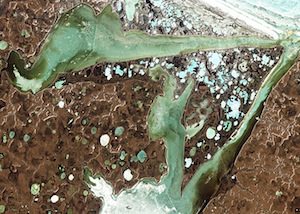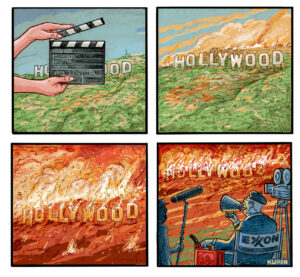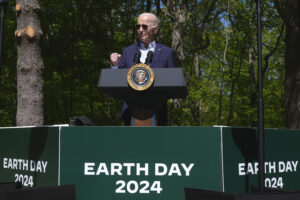How Bad Will It Be When the Permafrost Melts?
If the Earth's average global temperature rises by another few tenths of a degree, a large area of Siberian permafrost will start to melt uncontrollably, releasing 160 to 290 billion tonnes of carbon dioxide into the atmosphere in the years that follow. But the dangers have been overhyped, a British climate scientist says.
If the Earth’s average global temperature rises by another few tenths of a degree, a large area of Siberian permafrost will start to melt uncontrollably, releasing 160 to 290 billion tonnes of carbon dioxide into the atmosphere in the years that follow. But the dangers have been overhyped, a British climate scientist says.
Tim Lenton, a climate scientist at the University of Exeter in the U.K, says the greatest concern pertains to buildings and infrastructure that sit on the hard permafrost. For example, pipelines that transport Russian gas to Europe will be undermined as the ground on which they stand softens.
Those who fear global warming often refer to the release of methane trapped beneath permafrost as a game-changing event, throwing the world’s climate into a state of unstoppable heating. But Lenton says that future fossil fuel emissions by humans far outstrip what is likely stored beneath the icy Siberian ground. University of Florida scientist Ted Schuur agrees. Methane emissions are “not a runaway effect but an additional source that is not accounted in current climate models,” he said.
— Posted by Alexander Reed Kelly.
Your support is crucial…New Scientist:
[T]oday’s permafrost is likely to become vulnerable when we hit 1.5 °C of global warming.
… It will be very hard to stop the permafrost degrading as a warming of 1.5 °C is not far off. Between 1850 and 2005, global temperatures rose 0.8 °C, according to the 2007 report of the Intergovernmental Panel on Climate Change. Even if humanity stopped emitting greenhouse gases tomorrow, temperatures would rise another 0.2 °C over the next 20 years. That would leave a window of 0.5 °C – but in fact our emissions are increasing. What’s more, new fossil fuel power stations commit us to several decades of emissions.
With an uncertain future and a new administration casting doubt on press freedoms, the danger is clear: The truth is at risk.
Now is the time to give. Your tax-deductible support allows us to dig deeper, delivering fearless investigative reporting and analysis that exposes what’s really happening — without compromise.
Stand with our courageous journalists. Donate today to protect a free press, uphold democracy and unearth untold stories.






You need to be a supporter to comment.
There are currently no responses to this article.
Be the first to respond.